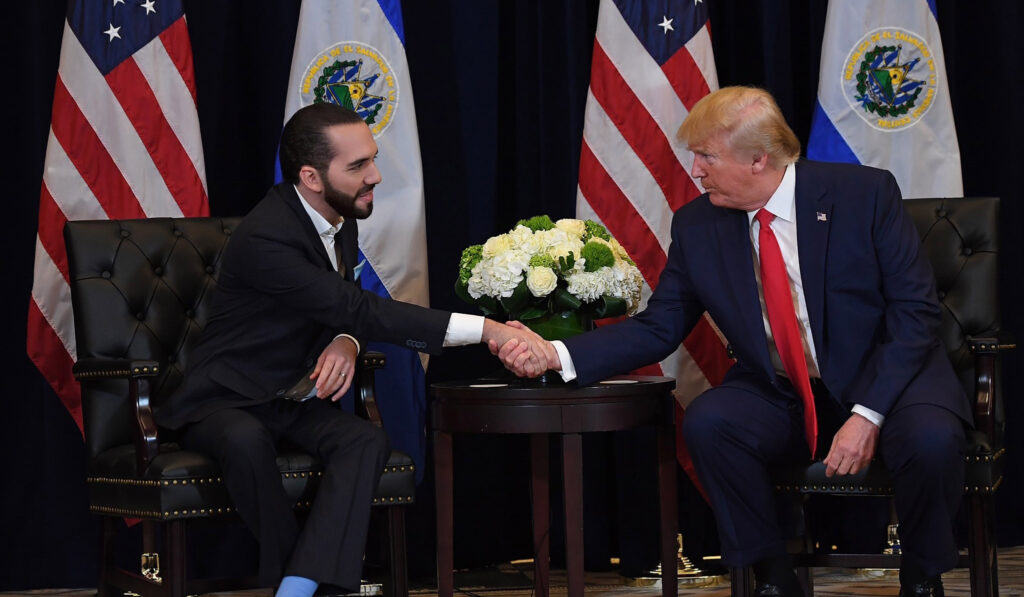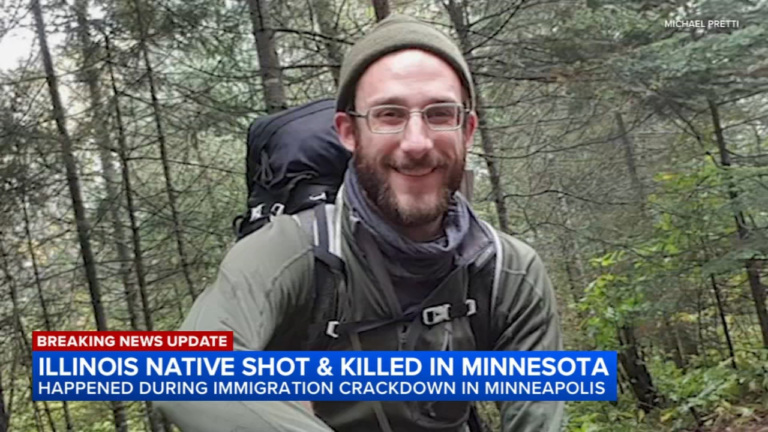In a recent development, President Donald Trump expressed gratitude towards El Salvador and its President, Nayib Bukele, for accepting hundreds of alleged gang members deported from the United States. This move underscores the collaborative efforts between the two nations in addressing gang-related activities and enhancing regional security.

(Salvadoran President Nayib Bukele and Donald Trump on Talks) Source photo:1lurer
Deportation Under the Alien Enemies Act
Invoking the Alien Enemies Act of 1798, President Trump facilitated the deportation of 261 individuals, including members of the notorious MS-13 gang and Venezuela’s Tren de Aragua gang. The Alien Enemies Act permits the deportation of nationals from enemy countries during wartime without a hearing. The deportees’ criminal records encompassed severe offenses such as kidnapping, sexual abuse of minors, aggravated assault, and robbery.
Legal Challenges and Administration’s Response
The deportations proceeded despite a U.S. District Judge’s order to halt the flights. The administration contended that the judge’s directive lacked lawful basis and was issued after the deportees were already in international airspace. White House Press Secretary Karoline Leavitt stated that a single judge could not dictate the movements of aircraft carrying individuals expelled from U.S. soil.
El Salvador’s Reception and Incarceration
Upon arrival in El Salvador, the deported individuals were transferred to the Terrorism Confinement Center (CECOT) in Tecoluca. CECOT, inaugurated in early 2023, is a maximum-security prison designed to house up to 40,000 inmates. The facility is part of El Salvador’s aggressive anti-crime strategy, focusing on detaining gang members under stringent conditions without privileges such as visitation or education.
While the collaboration between the U.S. and El Salvador has been praised by officials like Secretary of State Marco Rubio, who lauded President Bukele as a strong security leader and a great friend of the U.S., human rights organizations have raised alarms. Critics argue that El Salvador’s prison system is plagued by overcrowding, inadequate medical care, and reports of inmate abuses. Since the crackdown began, over 100 inmate deaths have been reported, highlighting the harsh conditions within these facilities.
Implications for U.S. Immigration Policy
This deportation initiative reflects the current administration’s stringent stance on immigration, particularly concerning individuals with alleged gang affiliations. The use of the Alien Enemies Act, a wartime measure, in this context has sparked legal debates and discussions about its applicability in modern immigration enforcement. The administration maintains that such decisive actions are necessary to safeguard national security and uphold the rule of law.
In summary, the U.S.’s deportation of alleged gang members to El Salvador, facilitated by invoking the Alien Enemies Act, has garnered both commendation for international cooperation and criticism over potential human rights implications. As these events unfold, they continue to shape the discourse on immigration policy and international law enforcement collaboration.


